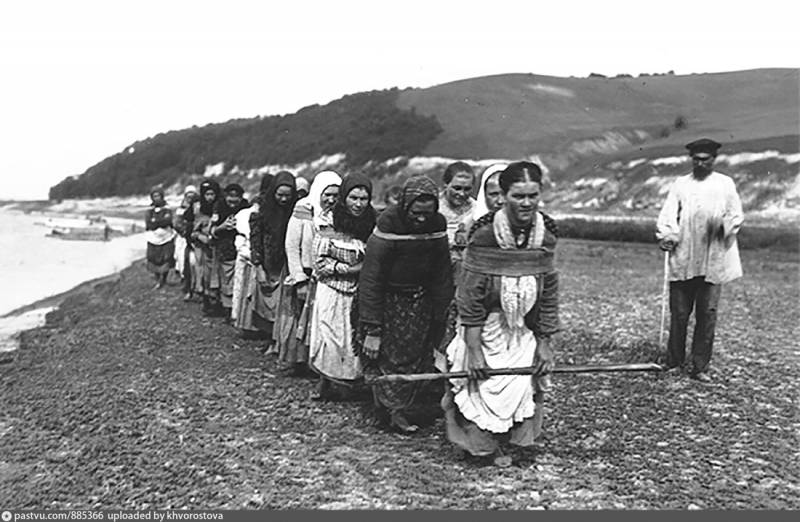Social discontent in the Russian Empire
Many problems arose with the development of the working class in the cities.
working
Most of the Russian factory workers were poor. Many earned nothing but food and were subjected to cruel, degrading treatment at work. Safety regulations have been widely ignored. The foremen could fine workers for minor or even perceived violations of the rules.
In the 1880s, the average working day without overtime was 12 to 14 hours.
The lodging was bad. For most, the choice lay between the grim company barracks and the unhygienic, crowded rented rooms. The health care was terrible. Social security, if it existed at all, was extremely expensive.
These conditions largely explain the rebellion that turned the Russian working class into a world legend in 1905 and 1917.
The squalor was not unique to Russia. Despite the fact that in countries such as Britain and Germany by the end of the century some sections of the industrial workforce began to enjoy somewhat more comfortable lives, even in Western Europe there were areas of dire poverty. Most of the workers in Milan and Turin fared little better than in St. Petersburg, and the spirit of rebellion flourished equally in all three cities.
It was once thought that trouble came mainly from unskilled “raw youth” from the countryside, who swarmed in cities and sometimes formed uncontrollable crowds. But that did not explain the lull of Irish immigrants in Birmingham.
Moreover, it is clear from Russian industrial conflicts that both leadership and inspiration came from a more skilled and more urbanized workforce. As in other places, these workers tended to have the understanding and organization to begin the fight for better treatment. A slight increase in average real wages occurred between 1900 and 1913, and this was most noticeable among skilled workers.
Poor conditions and rising expectations caused turbulence in the UK, France and Germany during this period. The same thing happened in the Russian Empire.
The strikes were not particularly widespread until the turn of the century. 1899 was the peak year of a decade of industrial conflict, with only 97 strikers. But the continued ban on trade unions has exacerbated tensions. This was recognized in all major industrial countries, albeit only eventually and often with reservations, with the exception of Russia.
The rapidity of industrialization has made it vital to open up channels for expression of discontent, and the sheer size of many factories in Russia has heightened the sense of a gap between employers and workers. In 1914, two-fifths of the workers in industrial firms belonged to a workforce of over 1000.
The peasants
The peasants, with the exception of some riots in the early 1860s and late 1870s, did not bother the police much in the last century.
Yet their basic misfortune was acutely felt. They were angry that so much of the land they cultivated had to be rented from landowners who were also hated for holding onto important pastures and forests. This largely impeded any growth in income received by the peasantry.
Most of the peasants in European Russia lived in communes. The government used this institution as a free tax collection and self-monitoring mechanism. Communes in central and northern Russia periodically redistributed their land among local peasant farms. But inequality persisted, so the richer peasants, known as kulaks, hired other peasants as workers.
The rural poor in Russia, as in Ireland and Germany, lived in miserable conditions. This focused rural minds on the land issue.
Peasant land hunger was almost universal. And the belief that noble landowners should be forced to give up their land was deeply ingrained.
Then there were discriminatory laws.
Until 1904, peasants were subjected to corporal punishment for misconduct. The position of "land captains" who were tasked with keeping order in the villages and who were often from the nobility was another nuisance.
PS
You can also read more about political instability before the war in the Russian Empire.

Information